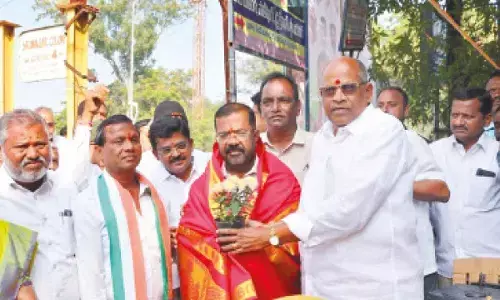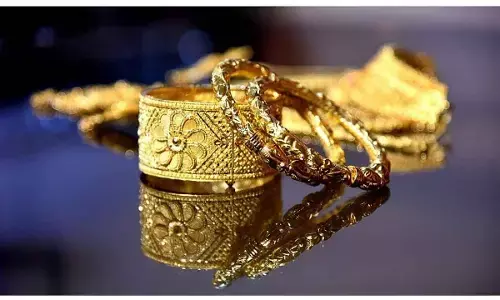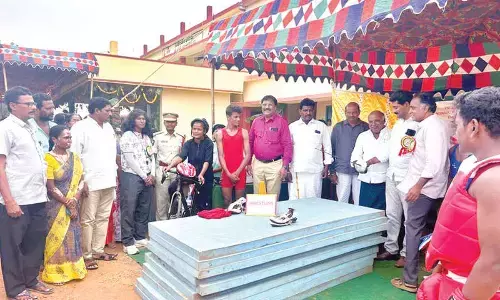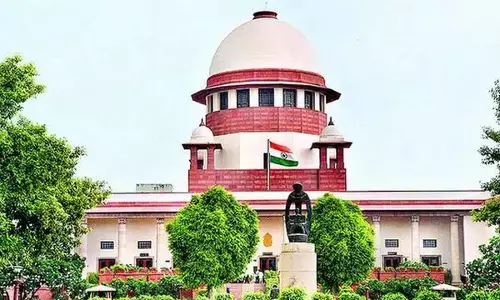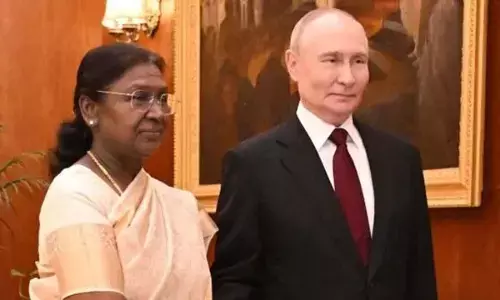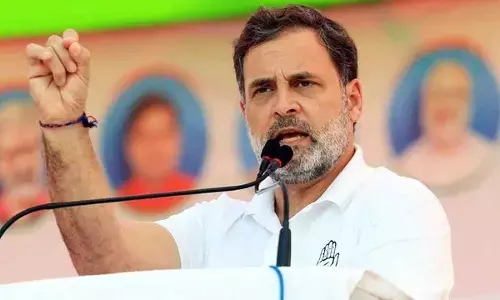From The Roots To Statelessness : Are "We, the People of India"?
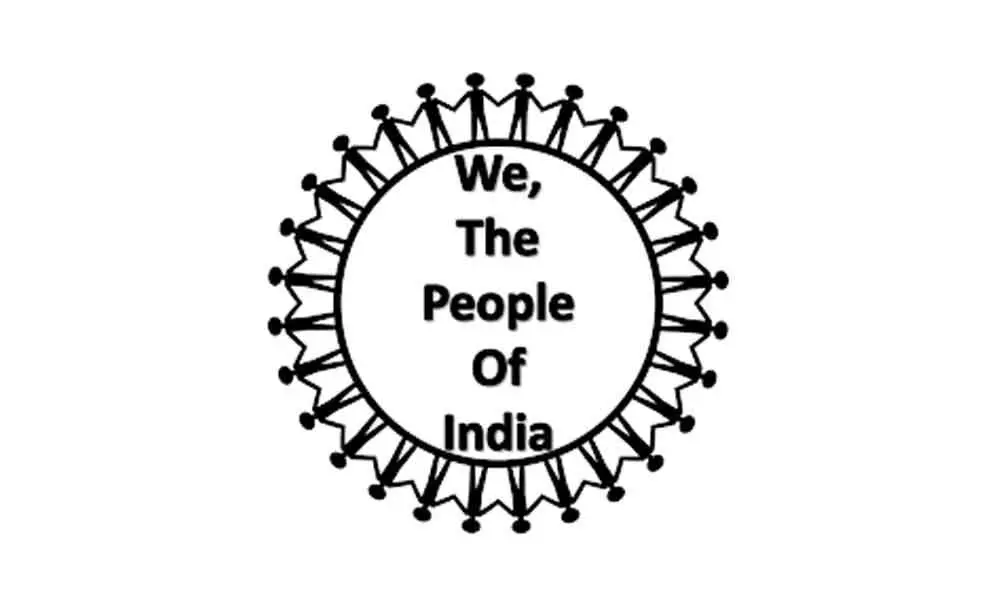
In the 70-year Republic, the public of India are burdened to prove their citizenship under NRC rules, prove place and birth of their parents under NPR, or face the CAA 2019.
In the 70-year Republic, the public of India are burdened to prove their citizenship under NRC rules, prove place and birth of their parents under NPR, or face the CAA 2019. With CAA, the citizens might end up in Detention Centres.
The 2015 and 2016 notifications under the Foreigners Act and Passport (Entry into India) Rules 1950 regularised the stay of non-Muslim migrants from Pakistan, Bangladesh and Afghanistan who had entered India before December 31, 2014 after fleeing religious persecution in their home countries.
On July 31, 2019, the Union Ministry of Home Affairs had issued the notification for preparation of NPR between April 2020 to September 2020. From the roots the Indians should now travel in the routes of NRC through NPR to reach either certificate of Indian Citizenship or statelessness.
Basis of NPR is not the 'law (Act)' but the Rules called Citizenship (Registration of Citizens and Issue of National Identity Cards) Rules, 2003 under Citizenship Act, 1955. What is not there in the Act, cannot be there in Rules. This main principle of justice is defied here. These 2003 Rules also contain a 'framework' for National Register of Indian Citizens. Thus NRC and NPR are rooted in the same 2003 Rules.
Rule 2(l) of these Rules define 'Population Register' as: "Population Register means the register containing details of persons usually residing in a village or rural area or town or ward or demarcated area (demarcated by the Registrar General of Citizen Registration) within a ward in a town or urban area;" An 'usual resident' for the purpose of NPR is a person who has resided in a place for 6 months or more and intends to reside there for a period of another 6 months or more.
Section 2(h) says: "Local Registrar of Citizen Registration. means a local officer, or a revenue officer, appointed by the State government at the lowest geographical jurisdiction, that is to say, of a village or rural area or town, or ward..."
The following demographic details of every individual were taken for NPR in 2010: Name of person, Relationship to head of household, Father's & Mother's name, Spouse's name (if married), Sex, Date of Birth, Marital status, Place of birth, Nationality (as declared), Present address of usual residence, Duration of stay at present address, Permanent residential address, Occupation/Activity, Educational qualification.
Rule 3(4) of the 2003 Citizenship Rules, says the Centre fixes the date by for preparation of NPR. The data for NPR was collected first in 2010 and updated in 2015. In a Gazette Notification on July 31, 2019, the MHA (Ministry of Home Affairs declared start of data collection from on April 1, 2020 up to September 30, 2020.
The Registrar General, India is the National Registration Authority for NPR and functions as the Registrar General of Citizen Registration for NRC also.
The government claims that census and NPR are the same. If so, why double exercise? Census carried out under the Census Act, 1948 is based on self-declaration without verification. Its voluntary. Whereas NPR data collection under 2003 Rules is compulsory with a coercive element, as persons could be penalized for refusing or giving false information or for non-cooperation under Rule 17. [Rule 17. Penal consequences in certain cases. - Any violation of provisions of rules 5, 7, 8, 10, 11 and 14 shall be punishable with fine which may extend to one thousand rupees]
Most dangerous and illegal part of the NPR is Rule 4 (4) which says: During the verification process, particulars of such individuals, whose Citizenship is doubtful, shall be entered by the Local Registrar with appropriate remark in the Population Register for further enquiry and in case of doubtful Citizenship, the individual or the family shall be informed in a specified proforma immediately after the verification process is over.
(5) (a) Every person or family specified in sub-rule (4), shall be given an opportunity of being heard by the Sub-district or Taluk Registrar of Citizen Registration, before a final decision is taken to include or to exclude their particulars in the National Register of Indian Citizens.
(b) The Sub-district or Taluk Registrar shall finalize his findings within a period of ninety days of the entry being made, or within such reasonable extended time for which he shall record the reasons in writing.
4(6) (b) Any objection against a particular entry or for inclusion of a name, or corrections if any, in the Local Register of Indian Citizens may be made within a period of thirty days from the date of publication of the draft of the Local Register of Indian Citizens, spelling out the nature and reasons for the objection. This can be more abused than used.
Deletion of name
Rule10 authorises deletion of name of a citizen on the ground of incorrect information. It's a huge authority at discretion of local revenue officer, unbridled and unguided. Rule 10 says: Deletion of name and particulars from National Register of Indian Citizens.
(1) The name and particulars of a Citizen may be removed from the National Register of Indian Citizens by an order of the Registrar General of Citizen Registration or any officer authorized by him in this behalf in the event of (iv) the particulars provided by the individual or the family found to be incorrect subsequently, thereby affecting the Citizenship status of the person.
What is NRC/NRIC?
Rule 3(1) states that the Registrar General shall establish and maintain the National Register of Indian Citizens. Section 14A of the Citizenship Act, says, that: 1. The Central Government may compulsorily register every citizen of India and issue national identity card to him.
The NRC will be divided into sub-parts consisting of the State Register of Indian Citizens, the District Register of Indian Citizens, the Sub-district Register of Indian Citizens and the Local Register of Indian Citizens.
NRC made out of data from NPR. The preparation of an NRC as per the 2003 Rules can be done only after NPR. So, NPR is a necessary pre-condition for NRC. The NRC will contain the details of the persons after "due verification made from" the NPR as per Rule 3(5), which says: "(5) The Local Register of Indian citizens shall contain details of persons after due verification made from the Population Register".
For making NRC, the particulars entered in the NPR is first verified by the Local Register of Citizens as per Rule 4(3). Following this verification, the NRC is finalised, after removing 'doubtful citizens'. The Rules give power to the Local Register to mark 'doubtful citizens' after the verification of NPR particulars.
The 'doubtful citizens' are given an opportunity of hearing before removal. After that, a draft NRC for the local area is published. People are granted even opportunity [Rule 4(60] to raise objections against inclusions in the NRC. Following this, the final NRC is published.
The questionnaire for the 2020 NPR is different from the 2010 NPR. The 2020 NPR 'Schedule' asks about details of date of birth and place of birth of one's parents also.
The authorities may even ask for proof for this. It is difficult, if not, impossible for ordinary persons to prove place & date of birth The citizenship status of one's parents is a determining factor for citizenship by birth after the 1987 and 2003 amendments to Citizenship Act 1955. This could be an additional factor showing a nexus between NPR and NRC.
It will be a national harassment of entire population to prove their citizenship, saying voters' card, ration card, passport, Aadhaar and pan will be no proofs of citizenship.
This can lead to bureaucratic high handedness and arbitrariness, especially when large sections are uneducated and backward. Assam experience shows that 19 lakh including 13 lakh Hindus are going to face statelessness because of lack of proof of citizenship.
The 2003 Rules create a category of "doubtful citizen" a bizarre category that is inherently subjective and open to administrative abuse as there are no guidelines for exercise of unfettered discretion.
The amendments made to Foreigners (Tribunals) Order 1964 in 2019 empower a District Magistrate to refer a 'doubtful citizen' to a Foreigners Tribunal, this is the vital link between NPR and NRC with CAA.
They will apply CAA to the doubtful citizens, which means though they are not migrants from different neighbouring countries, they will be considered as migrants but 'legal' because of newly defined exceptions. This means from the existing population, Muslims will be excluded by 'law' and others can be excluded by abuse of discretion.
It is, hence, not a problem of Muslims alone. The Centre is questioning or doubting or asking people to prove their nationality, Indianness and citizenship with documents which they may not have.
Foreigners Tribunals are quasi-judicial bodies where executive officers, without formal judicial training, act at the helm. As per the present law, the burden will be on the individual to prove citizenship. It will have devastating for majority of people, not just Muslims.
(The writer is former Central Information Commissioner and Professor at Bennett University)









